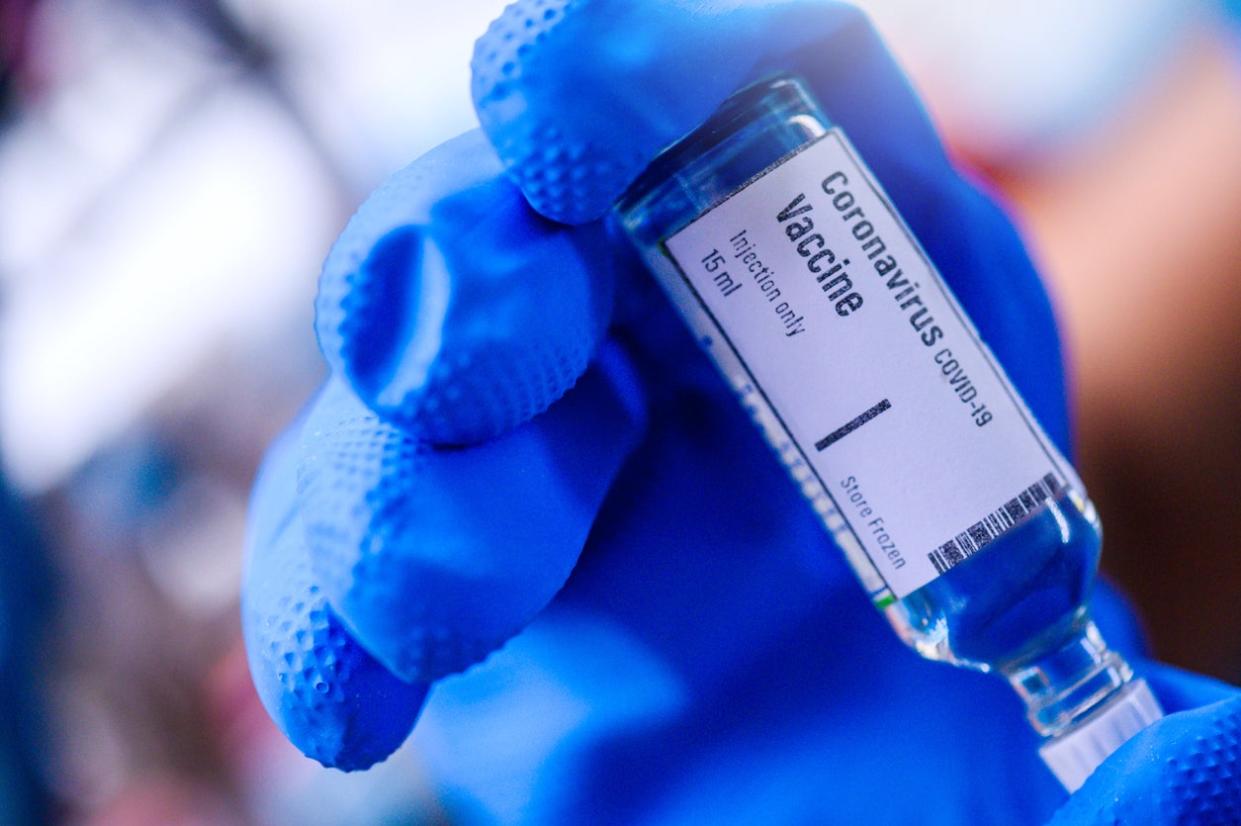‘Deplorable’: UK government condemns alleged Russian disinformation about Oxford coronavirus vaccine

An alleged Russian disinformation campaign to undermine public confidence in a coronavirus vaccine under development by Oxford University scientists has been condemned by the UK government as “utterly deplorable”.
The plot by individuals in Russia – reportedly including government officials - to cast the vaccine as dangerous was first reported by The Times on Friday.
The newspaper claims memes depicting the British-developed vaccine as turning people into monkeys or chimpanzees are being targeted at audiences in countries, including Western ones, where Russia wants to sell its own jab.
The campaign to seed the disinformation on websites in target countries also reportedly aimed to have Russian state media outlets report on the memes as evidence of public scepticism about the Oxford vaccine.
At least two of the images, which falsely mock the vaccine as a “monkey vaccine”, have already featured on Russian political affairs show Vesti News.
“Frankly it’s a shabby piece of disinformation,” Dominic Raab, the foreign secretary, told BBC Radio 4’s Today programme on Friday morning. “But it’s very serious because it’s an attempt to disrupt the attempts to find a safe vaccine.”
He added: “We know that Russia has a track record of using disinformation as a foreign policy tool. We’ve talked about it previously, but actually any attempt to spread lies about Covid-19 and the vaccine in particular when we’re trying to come together as an international community to resolve a global pandemic is utterly deplorable.”
Professor Andrew Pollard, director of the Oxford Vaccine Group, said any attempt to undermine public health “could be extremely dangerous”.
“Vaccines are such an important cornerstone of public health for children, that anything that drives that wider view in societies around the world that there is something unsafe about them, really risks the health of children around the world as well.”
The Oxford candidate, which uses as its vector a strain of the common cold virus that affects primates, is one of 11 vaccines currently in the third and final stage of trials.
Earlier this month, the European Medicines Agency (EMA), the continent’s main health regulator for medical drugs, announced it had started a rolling review of the Oxford vaccine.
This means that the EMA’s vaccine committee has begun evaluating the first batch of data on the candidate. This process of analysis will continue until sufficient data is available and a formal application is made.
“This does not mean that a conclusion can be reached yet on the vaccine’s safety and effectiveness, as much of the evidence is still to be submitted to the committee,” the watchdog said.
Trials for the vaccine were paused in September after a participant had a suspected adverse reaction in the UK.
AstraZeneca, which is manufacturing the vaccine on a global scale, described it as a “routine” pause in the case of “an unexplained illness”. Trials in the UK have since resumed.
The UK has ordered 30 million doses of the vaccine, which is already being produced ahead of its expected approval.
A Russian embassy spokesperson told The Times any accusation against Moscow “is itself an example of disinformation”.
“It is obviously aimed at discrediting Russia’s efforts in combating the pandemic, including the good co-operation we have established with the UK in this field,” the spokesperson said.
Read more
Covid vaccine rollout must not involve private firms, union warns
Without a vaccine, the UK may never tackle coronavirus effectively
The race for a vaccine has revealed Cold War-style divides in science
England ‘very close’ to pandemic peak within weeks, top scientist says

 Yahoo News
Yahoo News 
